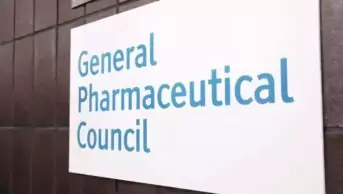
Shutterstock.com
Almost nine out of ten people (89%) said it was “important that pharmacists are the first point of contact for common clinical conditions”, according to an Ipsos Mori survey of the Scottish general public.
The survey, in which 1,107 adults took part between 22–29 November 2021, was commissioned by the Royal Pharmaceutical Society (RPS) to explore the public’s perceptions of pharmacy services.
The results, published on 16 February 2022, also showed that 87% of respondents thought it was “important that pharmacists prescribe medicines”, while 81% said it was important that pharmacists “monitor, review and adjust medicines for long-term conditions, such as blood pressure”.
Most participants (95%) valued pharmacists’ capacity to “refer people to other health services, advise on medicines, and provide advice and services to prevent ill health”.
Under the Pharmacy First service, which launched in Scotland in July 2020, anyone living in Scotland can visit a pharmacist as their first port of call for all minor illnesses, such as UTIs, impetigo and acne. Pharmacies delivering the service are reimbursed when they provide assessment, referral or treatment.
An extended version of the service — Pharmacy First Plus, which started in September 2020 — is led by pharmacist independent prescribers who can manage the treatment of patients with common clinical conditions that may otherwise have needed referral to another healthcare provider, including allergies and eye infections.
A nationwide pharmacotherapy service, which was first announced in 2018, is also being rolled out in Scotland. It involves pharmacists and pharmacy technicians working in general practice, with responsibilities including authorising or actioning all acute and repeat prescribing requests, medicines reconciliation, non-clinical medication reviews and monitoring high-risk medicines.
Speaking to The Pharmaceutical Journal in November 2021, Alison Strath, chief pharmaceutical officer for Scotland, said more than 2 million consultations had been carried out under Pharmacy First since the service began.
And, in a statement published on 8 March 2022 , RPS Scotland said: “In recent years, pharmacists have expanded their roles in GP practices, and now work in 96% of Scotland’s GP practices to help patients to manage their medicines.”
Clare Morrison, director for RPS Scotland, said: “Having just published ‘Pharmacy 2030’, our vision for the future of pharmacy in Scotland, it is fantastic to know that the Scottish public relate to the ideas contained within our vision.
“The ideas in the vision have been developed with the ultimate aims of improving the quality of patient experience, as well as improving safety and capacity across the NHS and social care.
“It’s great to know that the public really value pharmacists taking on a wider range of roles, whether in hospital, general practice or community settings.”
In February 2022 RPS Scotland and the National Pharmacy Technician Group Scotland (NPTGS) jointly published ‘Pharmacy 2030′, which describes how the two bodies see the future direction of pharmacy across all sectors.
The vision sees a “shift away from checking other professionals’ work towards pharmacists having a clinical, prescribing role to manage the care of individual patients”.
A parliamentary motion recognising the aims of ‘Pharmacy 2030’, lodged on 11 February 2022 by Jackie Baillie MSP, has so far received the support of 33 MSPs.
Read more: Government response suggests ‘Pharmacy First’ policy in England is under development


